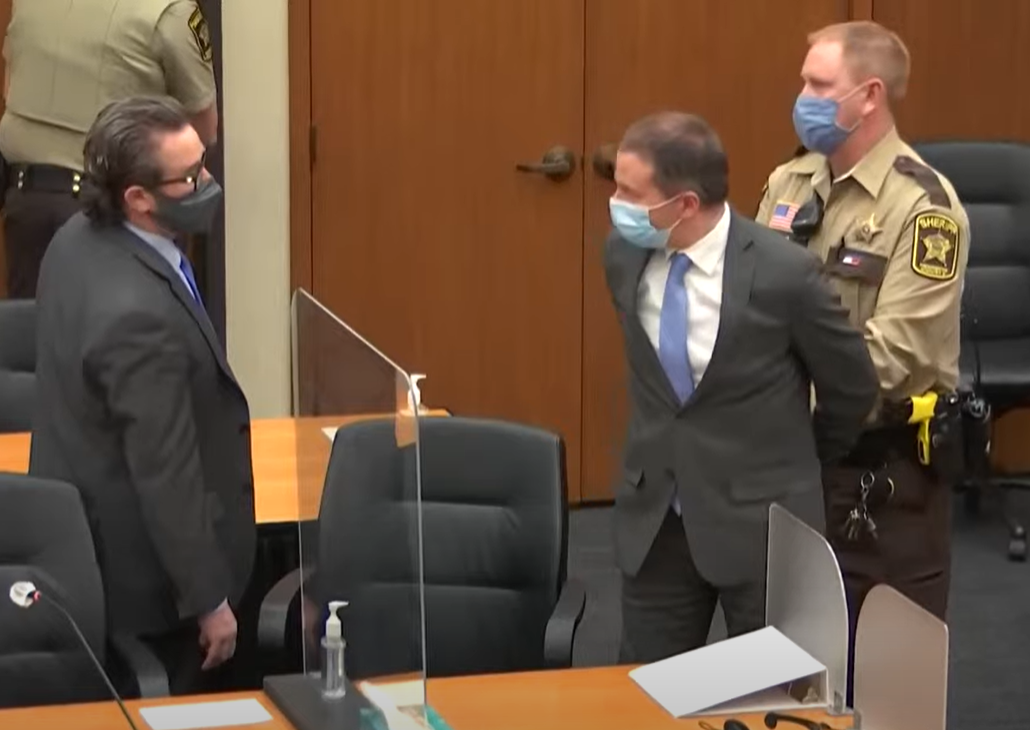Derek Chauvin is guilty of murder. This is the beginning, not the end
When I was younger, I went to the police for help. Later, I learned not to


Your support helps us to tell the story
From reproductive rights to climate change to Big Tech, The Independent is on the ground when the story is developing. Whether it's investigating the financials of Elon Musk's pro-Trump PAC or producing our latest documentary, 'The A Word', which shines a light on the American women fighting for reproductive rights, we know how important it is to parse out the facts from the messaging.
At such a critical moment in US history, we need reporters on the ground. Your donation allows us to keep sending journalists to speak to both sides of the story.
The Independent is trusted by Americans across the entire political spectrum. And unlike many other quality news outlets, we choose not to lock Americans out of our reporting and analysis with paywalls. We believe quality journalism should be available to everyone, paid for by those who can afford it.
Your support makes all the difference.Growing up Black and gay in Texas, I stopped a man in blue after I had been the victim of a vicious “gay-bashing” that left me bloody and terrified. Instead of offering a hand, he said, “If you weren’t out spreading AIDS, you wouldn’t have gotten your ass kicked,” and drove off.
That wasn’t the only time I had interactions with police that made me question whether or not they were there to “protect and serve” people like me.
Several years ago, when I was visiting my sister in Houston, we were robbed at gunpoint by two men who waved their weapons inches from our faces. After they had taken what they wanted, my sister and I were left stunned. We had a serious debate over whether or not we should go to the cops. Ultimately, we did not, out of worry we could wind up victims of more than a robbery.
That’s why the conviction of Derek Chauvin is a surprise: He was found guilty on all murder charges today and now faces up to 40 years in prison. We are so used to seeing white police let off the hook for killing Black and brown people that it’s almost hard to know how to react.
The conviction of Chauvin won’t bring George Floyd back. It won’t prevent white officers from killing more Black people, either. But it is an opportunity for us to finally say “Black Lives Matter” and believe it, and hopefully the beginning of work to transform public safety in ways that truly serve all people in all communities.
Derek Chauvin didn’t see George Floyd’s humanity in the same way that officers didn’t see the humanity of Breonna Taylor as she slept in her home in Kentucky, or the humanity of Stephon Clark as he stood in his grandmother’s backyard in California, or the humanity of 12-year-old Tamir Rice as he played in a public park in Ohio. They saw dark skin and responded with guns drawn.
Black people keep hoping that white Americans and elected officials will finally see what we see: Police departments are operating with a “shoot first, make excuses later” mentality that puts people of color in constant danger. The realization that any interaction with an officer of the peace could take a fatal wrong turn is taking a severe toll on our collective mental health. It’s traumatizing knowing that our tax dollars pay the salaries of those who harm us.
We are told that it’s just a few “bad apples” as if we’re talking about fruit salad and not people with guns strapped to their waists and the authority to use them. And history has shown us that even when a good cop tries to stop the excess use of force, they are punished. Take the case of Black officer Cariol Horne, who was fired in 2008 for intervening when another officer used a chokehold on a handcuffed suspect, as one example. After a 13-year long court battle, she received a ruling this week that grants her back pay and a pension. It’s still not fair, but it’s a start.
Elected officials should all heed the recommendation of Letitia James, New York’s Black attorney general, that police departments get out of the business of routine traffic enforcement and pursuing minor infractions to end this senseless violence. They should follow the states like Virginia that have passed “Breonna’s Law” to ban “no-knock” warrants and require more officers to have body cameras on when conducting searches.
In other words: They should be prepared for more change. This verdict is the beginning, not the end, of a movement that calls for the police to accept the humanity of the Black people they have failed for far too long.
Join our commenting forum
Join thought-provoking conversations, follow other Independent readers and see their replies
Comments